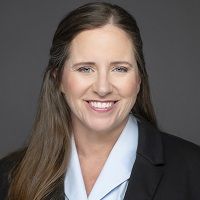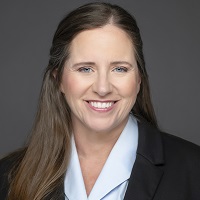Should Your Financial Advisor Get Involved in Family Conflicts?
As an objective third party, your financial advisor could offer insight into financial issues to lessen conflict, but they’re not a mediator.


Profit and prosper with the best of Kiplinger's advice on investing, taxes, retirement, personal finance and much more. Delivered daily. Enter your email in the box and click Sign Me Up.
You are now subscribed
Your newsletter sign-up was successful
Want to add more newsletters?

Delivered daily
Kiplinger Today
Profit and prosper with the best of Kiplinger's advice on investing, taxes, retirement, personal finance and much more delivered daily. Smart money moves start here.

Sent five days a week
Kiplinger A Step Ahead
Get practical help to make better financial decisions in your everyday life, from spending to savings on top deals.

Delivered daily
Kiplinger Closing Bell
Get today's biggest financial and investing headlines delivered to your inbox every day the U.S. stock market is open.

Sent twice a week
Kiplinger Adviser Intel
Financial pros across the country share best practices and fresh tactics to preserve and grow your wealth.

Delivered weekly
Kiplinger Tax Tips
Trim your federal and state tax bills with practical tax-planning and tax-cutting strategies.

Sent twice a week
Kiplinger Retirement Tips
Your twice-a-week guide to planning and enjoying a financially secure and richly rewarding retirement

Sent bimonthly.
Kiplinger Adviser Angle
Insights for advisers, wealth managers and other financial professionals.

Sent twice a week
Kiplinger Investing Weekly
Your twice-a-week roundup of promising stocks, funds, companies and industries you should consider, ones you should avoid, and why.

Sent weekly for six weeks
Kiplinger Invest for Retirement
Your step-by-step six-part series on how to invest for retirement, from devising a successful strategy to exactly which investments to choose.
We all know a financial advisor will help you and your family plan for your financial future. But naturally, with families come emotions, and with emotions come complexities.
The undeniable reality is that every family has conflict at some point. When you think about your family’s estate plan, existing conflicts can significantly impact how you approach wealth transfer and the roles individuals play within the family enterprise.
Your financial advisor is not the family mediator, but they can be a partner to help you identify the roles, strengths and function of each family member — and having context about conflicts that may influence behaviors within the family can help. So, when is the right time to bring your financial advisor into the fold when family conflicts arise?
From just $107.88 $24.99 for Kiplinger Personal Finance
Become a smarter, better informed investor. Subscribe from just $107.88 $24.99, plus get up to 4 Special Issues

Sign up for Kiplinger’s Free Newsletters
Profit and prosper with the best of expert advice on investing, taxes, retirement, personal finance and more - straight to your e-mail.
Profit and prosper with the best of expert advice - straight to your e-mail.
Defining roles and responsibilities
When you think about your long-term estate plan, each family member should have a distinct role and set of responsibilities, no matter how big or small. These roles should speak to the individuals’ strengths and passions.
For example, if you own a family business and have three children, that doesn’t necessarily mean the business will pass on equally between the three. Perhaps one child has more of an entrepreneurial spirit, or another has a distaste for the business, and forcing them into a significant role may, in turn, increase conflict. Maybe two siblings do not get along, and there needs to be clear lanes of ownership so that they do not compete against each other.
You know your family best, and it’s important for you to share any important background with your financial advisor that can help inform how family members may contribute to the estate plan and participate in a successful wealth transfer. Your financial advisor can then serve as a trusted liaison and gather all members together to discuss these roles and how they contribute to the bigger picture and long-term goals of the family.
When families navigate conflict, the meetings aren’t always easy. But disagreement isn’t necessarily a bad thing, especially when it comes to finances; it shows that the family members are engaged.
Mitigating conflict
Again, your financial advisor is not a mediator. But when the family gathers together to discuss your estate plan, your financial advisor can play a critical role in mitigating conflict not only in the heat of the moment but also long term by ensuring that the conversation stays centralized around the family’s shared values.
Despite differences between family members, every family should have a written mission statement and an articulated set of shared values and beliefs. Families who are managing a more extensive wealth transfer should consider documenting their mission and values through a “family constitution,” which outlines the family’s core values, mission, vision and harder-hitting documents, including policies about how they will treat one another and what they own together.
This may feel very uncomfortable for some families to articulate. Some might find it unnecessary or over the top — you’re a family, so why would you need documents on how to interact with one another? The biggest driver of conflict is a lack of a decision-making process. And when there are significant assets at stake, a formalized system — what we call family governance — will help lay the foundation for clearer swim lanes, easier decision-making and quicker resolution of conflicts.
What family governance can look like
Your financial advisor can help you determine what family governance may look like for you. Some families may hold a family assembly or regular meetings during which family members learn and plan for the future. If you have a family business, setting up a working group can help propose policies on matters such as family employment, family communication and talent development.
They can also help you establish a process to evaluate the next generation of leadership for your family, assessing qualifications, skill sets and interests. There are many roles, big and small — shareholders, philanthropic leaders, wealth creators, wealth oversight, governance members, family council leaders and more. There should be a place for everyone wanting to participate in the family estate. With that said, your financial advisor should be aware of the interests, strengths and personalities at play so they can help identify the roles to meet each family member's expectations and to align with their desired level of involvement.
Your financial advisor’s role isn’t to break up fights or be there for you to vent to when a conflict arises. However, it’s undeniable that family matters can get emotional and sometimes tense, and it can make sense to include them, as a trusted partner, in the conversation when there are pressing issues that impact the family. As a third party, they can offer an impartial view that can facilitate finding a resolution vs letting conflicts simmer. With heightened awareness around ongoing sensitivities, your advisor can help you set up a framework where everyone feels like they have a seat at the table.
Morgan Stanley Smith Barney LLC (“Morgan Stanley”), its affiliates and Morgan Stanley Financial Advisors and Private Wealth Advisors do not provide tax or legal advice. Clients should consult their tax advisor for matters involving taxation and tax planning and their attorney for matters involving trust and estate planning, charitable giving, philanthropic planning and other legal matters. 3520533 04/2024
Related Content
- Is Your Financial Adviser Doing a Good Job for You?
- Want to Hire a Remote Financial Adviser? What to Consider
- Eight Times You Should Contact Your Financial Adviser
- Can I Hire a Financial Adviser to Manage My 401(k)?
- Should I Pay a Financial Adviser an Assets Under Management Fee?
Profit and prosper with the best of Kiplinger's advice on investing, taxes, retirement, personal finance and much more. Delivered daily. Enter your email in the box and click Sign Me Up.

Elizabeth Chand is a Family Office Resources Generalist for Morgan Stanley’s Family Office Resources. Elizabeth provides specialized expertise to Financial Advisors and their UHNW clients, educating and advising across a broad spectrum of family wealth management concerns, including customized asset allocation and portfolio construction, strategic estate and financial planning, philanthropy management, family governance, wealth education and lifestyle advisory.
-
 Stocks Sink With Alphabet, Bitcoin: Stock Market Today
Stocks Sink With Alphabet, Bitcoin: Stock Market TodayA dismal round of jobs data did little to lift sentiment on Thursday.
-
 Betting on Super Bowl 2026? New IRS Tax Changes Could Cost You
Betting on Super Bowl 2026? New IRS Tax Changes Could Cost YouTaxable Income When Super Bowl LX hype fades, some fans may be surprised to learn that sports betting tax rules have shifted.
-
 How Much It Costs to Host a Super Bowl Party in 2026
How Much It Costs to Host a Super Bowl Party in 2026Hosting a Super Bowl party in 2026 could cost you. Here's a breakdown of food, drink and entertainment costs — plus ways to save.
-
 The 4 Estate Planning Documents Every High-Net-Worth Family Needs (Not Just a Will)
The 4 Estate Planning Documents Every High-Net-Worth Family Needs (Not Just a Will)The key to successful estate planning for HNW families isn't just drafting these four documents, but ensuring they're current and immediately accessible.
-
 Love and Legacy: What Couples Rarely Talk About (But Should)
Love and Legacy: What Couples Rarely Talk About (But Should)Couples who talk openly about finances, including estate planning, are more likely to head into retirement joyfully. How can you get the conversation going?
-
 How to Get the Fair Value for Your Shares When You Are in the Minority Vote on a Sale of Substantially All Corporate Assets
How to Get the Fair Value for Your Shares When You Are in the Minority Vote on a Sale of Substantially All Corporate AssetsWhen a sale of substantially all corporate assets is approved by majority vote, shareholders on the losing side of the vote should understand their rights.
-
 How to Add a Pet Trust to Your Estate Plan: Don't Leave Your Best Friend to Chance
How to Add a Pet Trust to Your Estate Plan: Don't Leave Your Best Friend to ChanceAdding a pet trust to your estate plan can ensure your pets are properly looked after when you're no longer able to care for them. This is how to go about it.
-
 Want to Avoid Leaving Chaos in Your Wake? Don't Leave Behind an Outdated Estate Plan
Want to Avoid Leaving Chaos in Your Wake? Don't Leave Behind an Outdated Estate PlanAn outdated or incomplete estate plan could cause confusion for those handling your affairs at a difficult time. This guide highlights what to update and when.
-
 I'm a Financial Adviser: This Is Why I Became an Advocate for Fee-Only Financial Advice
I'm a Financial Adviser: This Is Why I Became an Advocate for Fee-Only Financial AdviceCan financial advisers who earn commissions on product sales give clients the best advice? For one professional, changing track was the clear choice.
-
 I Met With 100-Plus Advisers to Develop This Road Map for Adopting AI
I Met With 100-Plus Advisers to Develop This Road Map for Adopting AIFor financial advisers eager to embrace AI but unsure where to start, this road map will help you integrate the right tools and safeguards into your work.
-
 The Referral Revolution: How to Grow Your Business With Trust
The Referral Revolution: How to Grow Your Business With TrustYou can attract ideal clients by focusing on value and leveraging your current relationships to create a referral-based practice.